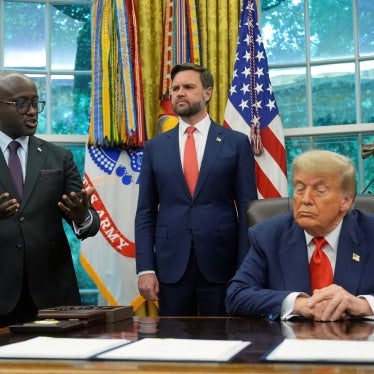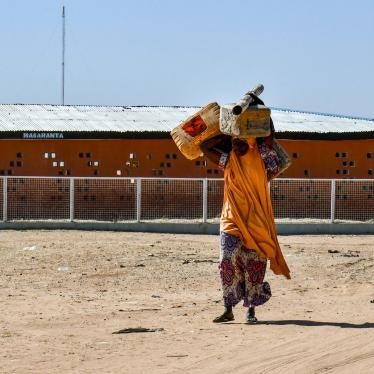Good news in the Central African Republic is rare. So it seemed strange to feel joy as I stood at dawn in the Muslim enclave of Yaloké watching 16 ethnic Peuhl cattle herders boarding a United Nations convoy heading for Cameroon. The Peuhl were smiling and happy. So was I. They would finally be reunited with their families and find safety.
They, and some 500 hundred other Peuhl, had been trapped for over a year on a small hill in Yaloké, a few hours drive north of the capital, Bangui. They couldn’t leave on their own for fear of being attacked by the ruthless anti-balaka militia, and in any case were blocked by local authorities and international peacekeepers on instructions from the transitional government, which did not want to appear to condone ethnic cleansing.
I visited Yaloké eight times over the past year to document what was happening. Each time my heart sank as I learned of more deaths, heartbreak, and despair. The death rate was alarmingly high: 53 Peuhl, mostly children and the elderly, died from malnutrition and preventable disease. Their bodies are buried in a rudimentary cemetery on the outskirts of the enclave, just behind the toilets.
My colleagues and I repeatedly rang the alarm bell about the deplorable conditions of those trapped in Yaloké, and the violation of their rights. Eventually things began to change. In January, the UN and humanitarian agencies began to provide better food, health care, and shelter. In April, UN peacekeepers started to relocate those who wanted to leave.
In May came the most dramatic U-turn: the prime minister visited Yaloké and announced that every Peuhl had the right to go where they wanted, inside the Central African Republic or to a neighboring country.
One Peuhl grandfather, who had earlier told me he wanted to go to Cameroon or die trying, changed his mind. “Before, we were treated worse than animals, we were not allowed to leave,” he said. “But now, we are being treated as humans. I see leaders in Bangui care about us and I am ready to try to stay in my country.”
Sentiments like this, from despair to hope, will help end the violence that has torn this country apart.









